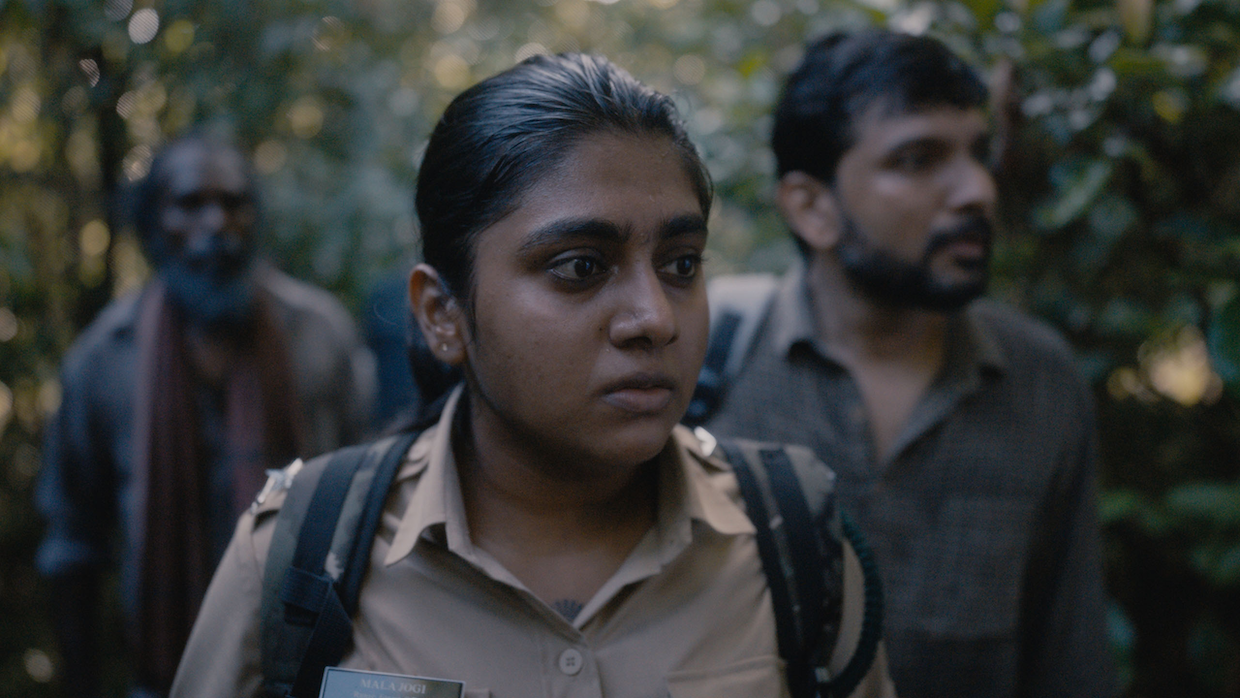 Back to selection
Back to selection
“Music Became an Important Voice in the Storytelling”: Editor Beverly Mills on Poacher
 Poacher, courtesy of Sundance Institute.
Poacher, courtesy of Sundance Institute. The hunt for justice on the behalf of slaughtered elephants in India is the basis of Poacher, an eight episode limited series from Richie Mehta. A fledgling team of NGO workers, wildlife conservationists and passionate volunteers venture into the the jungles of Kerala to protect a severely threatened species—uncovering a series of conspiracies and cover-ups that indict several individuals who are tasked with protecting these very creatures from the ivory trade.
Editor Beverly Mills offers insight on cutting the limited series, including the challenge of working with foreign language dialogue.
See all responses to our annual Sundance editor interviews here.
Filmmaker: How and why did you wind up being the editor of your film? What were the factors and attributes that led to your being hired for this job?
Mills: I have had a very happy collaboration with the director, Richie Mehta, on a couple of previous projects. So when this one came up, I knew I wanted to be involved. The germ of the idea for this project had begun on our first collaboration, India in a Day.
Filmmaker: In terms of advancing your film from its earliest assembly to your final cut, what were goals as an editor? What elements of the film did you want to enhance, or preserve, or tease out or totally reshape?
Mills: I think getting the pace right over eight episodes, with three editors, whilst maintaining clarity with a large cast of characters, and in three languages was uppermost in my mind. The score was also vital to shaping the story.
Filmmaker: How did you achieve these goals? What types of editing techniques, or processes, or feedback screenings allowed this work to occur?
Mills: The music was being composed and updated throughout the editing process, each informing the other as we progressed. It was a very organic way of working and the music became an important voice in the storytelling.
Filmmaker: As an editor, how did you come up in the business, and what influences have affected your work?
Mills: I started as an assistant working at the BBC on a range of output over a period of 19 years before becoming a freelance editor. I had read Theatre Studies and Drama at University, so performance and storytelling were where my editing instincts were rooted.
Filmmaker: What editing system did you use, and why?
Mills: I began cutting on 16mm film, progressed through tape formats, then Lightworks. Now I work using Avid Media Composer.
Filmmaker: What was the most difficult scene to cut and why? And how did you do it?
Mills: Working in languages which are not your own can be challenging, especially understanding the nuance of expression and performance. Arriving at the best rhythm and delivery of speech is acquired gradually throughout the process, and differs from actor to actor.
Filmmaker: What role did VFX work, or compositing, or other post-production techniques play in terms of the final edit?
Mills: As with many projects involving VFX, it becomes a question of adapting the cut as the VFX material emerges—adjusting, and sometimes changing the cut radically in response. In Poacher, the VFX are a significant bearer of character and emotion within the story.
Filmmaker: Finally, now that the process is over, what new meanings has the film taken on for you? What did you discover in the footage that you might not have seen initially, and how does your final understanding of the film differ from the understanding that you began with?
Mills: I have been impressed by the way the series, without sensationalizing, stereotyping or using gratuitous violence, has made a powerful statement about our coexistence with animals on the planet. It navigates the difficult, and often gray areas in the complexities surrounding poaching, and the human impulses associated with it, without being didactic or censorious. It allows the audience to come to its own conclusions, whilst telling an exciting story.
